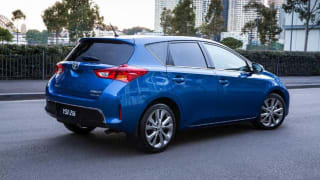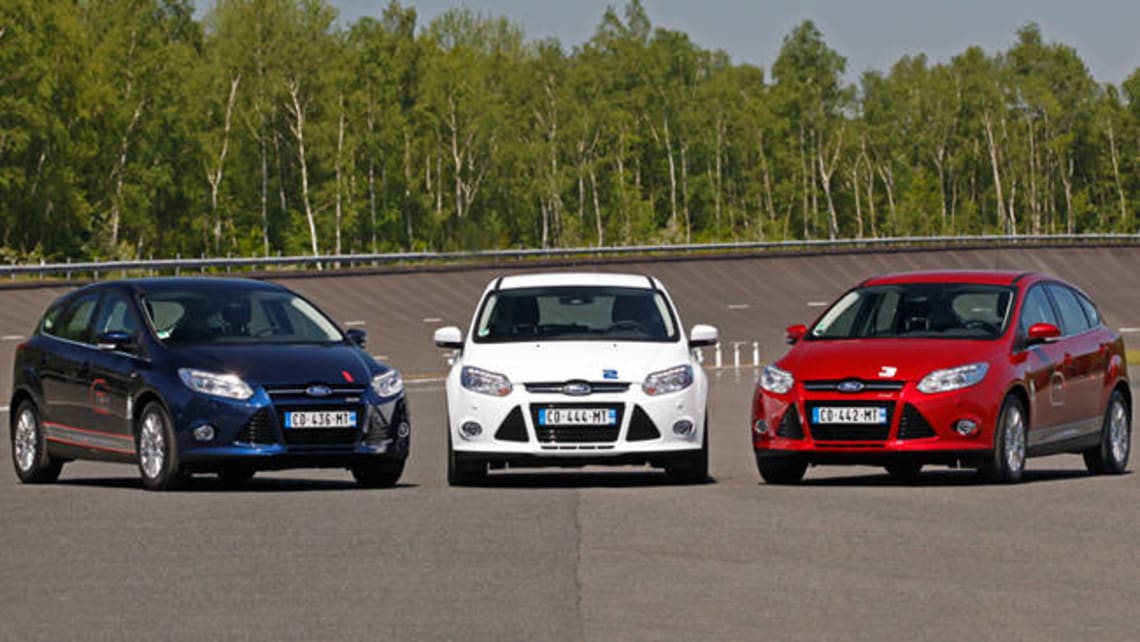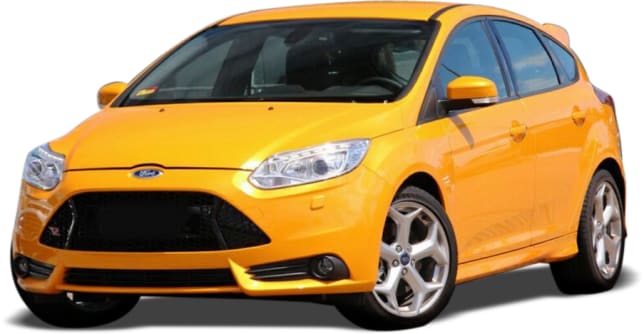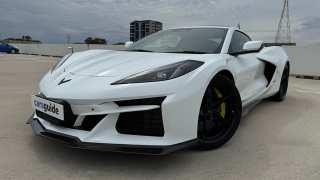While we probably won't see a Ford Focus 1.0-litre EcoBoost Down Under until at least 2014 we won't have to wait that long to sample the Blue Oval's award-winning engine.
See, when Ford's tiny-tot SUV, the EcoSport, hits dealerships late next year (2013), it'll be the 1.0-litre three-cylinder EcoBoost engine that'll headline. And what a brilliant engine it is.
Currently available in two states of tune (74kW and 170Nm with a five-speed manual or 91kW and 170Nm, and up to 200Nm on overboost for 30 seconds, and a six-speed manual) an dual-clutch transmission, or Powershift in Ford-speak, is being developed to suit the tiddler engine...
Explore the 2012 Ford Focus range
...since launch in Europe a couple of months ago, this engine has made an instant impact accounting for almost a quarter of all Focus sales.
Value
This is a tricky one. See, because there's so much time between now and when the Focus 1.0-litre EcoBoost arrives in Australia Ford is remaining tight-lipped about pricing.
But, given 70 per cent of our market in Australia is centred on automatics you can imagine this vehicle won't launch until the Powershift transmission is available, and that it'll be sometime after the EcoSport goes on-sale. Ford is hoping to make that vehicle a hero for the brand (via the engine).
So while we can't be 100 per cent certain, we're pretty sure you can expect, as standard, things like Bluetooth and iPod connectivity, 16-17-inch alloys, auto headlights, dual-zone climate control, and much more. Given the extra cost involved in building this clever little engine, pricing will probably see it sit at the upper end of current Focus pricing, so, somewhere between $25,000-$35,000. Maybe. We really can't be sure.
Technology
Under the bonnet is a 1.0-litre three-cylinder engine. We drove the bigger, metaphorically speaking, engine that makes 91kW and 170Nm from just off idle at 1300rpm - 4000rpm. This was mated to a six-speed manual, and returned an impressive 5.0L/100km (on the combined cycle). But what makes this engine truly remarkable is its level of refinement and drivability, and not just for a small capacity engine, but for an engine full stop.
Because of the inherently unbalanced nature of a three-cylinder car, Ford's engineers came up with a handful of firsts, like purposely unbalancing the crank pulley and flywheel to balance the engine - there is absolutely no vibration transferred to the car's structure - there is no balancer shaft. It also runs an offset crankshaft to reduce piston friction and thus improve fuel consumption, and the cam belt, made from a mix of glass fibre and rubber, runs through oil and lasts the life of the engine.
Design
One interesting side effect of making the engine smaller has been in weight saving (around 33kg when compared with the old 1.6-litre four-cylinder in the Focus) over the front-end of the car. And this has helped improve steering and handling, making a car that was already at the top of the small car handling tree even better.
There haven't been any changes to the exterior of the Focus for this EcoBoost model, nor to the interior. And so, it's the same old well laid out dashboard with quality materials and fit and finish. There's plenty of room in the front and the back of the car.
Safety
Given the Focus 1.0-litre EcoBoost is just an engine dropped into the Focus, it's as safe as any other Focus (Ford says the smaller engine actually improves front-end crushability). That means it gets a five-star ANCAP crash safety rating, and all of the usual active and passive safety systems. So, it gets, as standard, stability and traction control, hill-launch assist, ABS with emergency brake assist, airbags for front and back seat passengers, and much more.
Driving
This is where the 1.0-litre EcoBoost shines. Thumb the starter button and there's a slight off-beat shudder and then, nothing... it settles into a smooth, and quiet idle that, with the radio playing, you can't help but wonder if the start-stop function has cut in. Under hard acceleration, the engine growls with a delicious beat that reminds you of a five-cylinder. Our substantial launch drive saw us tackle plenty of steep and winding roads in the Eiffel mountains, and the countryside around Cologne.
From the get-go, the 1.0-litre EcoBoost offers diesel-esque off-idle pulling power, and allows for lazy driving. It would happily pull from 1000rpm in fourth gear, and that's despite running relatively tall gearing. Even on the autobahn, the triple (three cylinders) was happy to run with the big beemers and Mercs rocketing along the outside lane. Squeeze the throttle at 140km/h in sixth gear, and the Focus EcoBoost pulled, and pulled hard.











